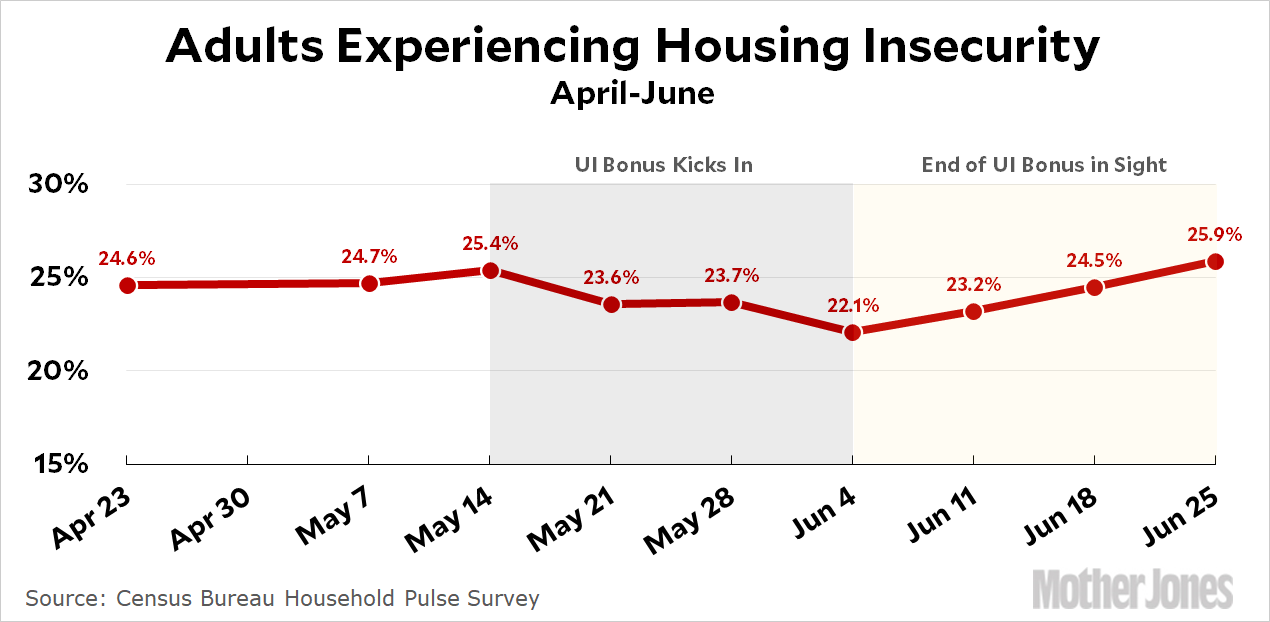I’ve seen quite a few pieces lately about the dire condition of renters and homeowners as the COVID-19 pandemic continues. For example:
The COVID-19 Eviction Defense Project, a coalition of economic researchers and legal experts, estimates that 19 million to 23 million Americans are at risk for eviction by the end of September.
Today, upwards of 20 million U.S. renters are poised to be evicted between now and September, according to Emily Benfer, the chair of the American Bar Association’s Task Force Committee on Eviction.
How bad are things, really? That’s difficult to say because there are so many different ways of measuring housing insecurity. However, near the beginning of the year the Census Bureau put together a survey specifically designed to find out how people were being affected by the pandemic. One of the questions was about the ability to make rent or mortgage payments:

It’s frustrating that the survey doesn’t start until April 23, which means we don’t know the level of housing insecurity prior to the pandemic. That said, my interpretation of this data is that as the stimulus checks and UI bonuses finally made their way to families, they became less concerned about missing rent payments. Then, in June, as they spent down the one-time stimulus and started to worry about the end of the UI bonus, housing insecurity rose.
An increase of four percentage points may seem small, but it represents about 10 million people. If housing insecurity rises to 30 percent by September, that would represent about 20 million people. So it’s fair to say that something like 20 million people might be at risk of eviction by September. It all depends on what Congress does. They have two choices:
- Twiddle their thumbs and let people be evicted.
- Extend the UI bonus and do it now. This would most likely keep housing insecurity from rising at all.
Which do you think they’ll do?

















